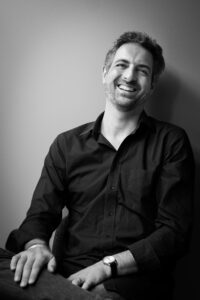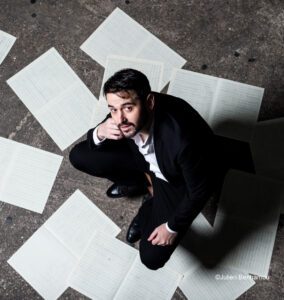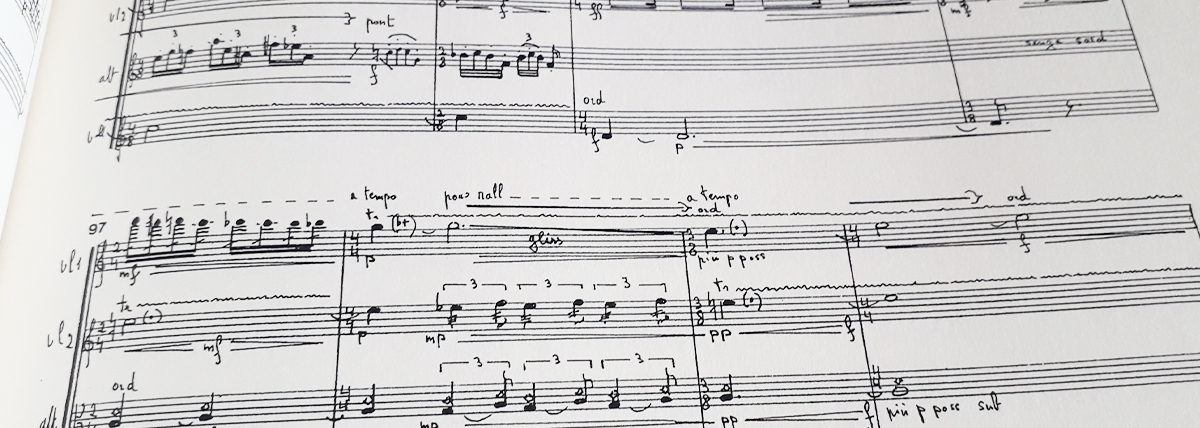Patron of the arts and sciences, Anne Gruner Schlumberger has supported contemporary composers, such as Roger Blanchard (1919-2011), Erich Itor Kahn (1905-1956), Gérard Grisey (1946-1998).
To continue to support artistic creation, the Fondation des Treilles creates a composition residency prize dedicated to the production of a musical work for concert, stage or audiovisual purpose and for which the candidate has already a commissioning contract signed with either a public or private musical structure.
This prize consists of a three-month residence at the Domaine des Treilles (Var), with a monthly prize of €2,650, paid according to the length of the resident’s stay.
Candidates
Applications are open to all nationalities from May 1st to October 1st.
Only professional candidates whose music has already been recorded or performed may apply.
The project for which the candidate submits his/her application must be either under a contract of engagement or commissioned by a public or private institution (Opera House, Orchestra, AV producer etc…). The commissioning contract must identify both parties, the musical work, the commission fee as well as the date of completion of the work. You cannot apply if the date of completion is prior to the date of residency.
Applications are received via an online form including a CV, the list of works already composed and a presentation of the project. At the same time, candidates must send to prix.composition@fondationdestreilles.com :
– at least two scores (in PDF format only) and the corresponding recordings or links to these recordings, if not the sound files (in mp3 or mp4 format only) ;
– the commissioning contract.
All applications are evaluated by the jury, which selects a laureate.
To know when to send your application, please refer to the applications deadlines.
The laureate
The prize winner will be hosted at the Domaine des Treilles for a total period of three months, although the stay may be fragmented. The first trip to and from the Fondation des Treilles is refunded. Meals and accommodation are also provided by the Foundation, which allows the laureate to devote himself/herself fully to his/her creative project.
The laureate stays in the Maison de Moussu which includes a bedroom, kitchen, bathroom and the composition studio.
This composition studio is equipped with an upright piano, a keyboard, a sound card and speakers.
The laureate must bring his/her own computer.
The laureate undertakes to respect the rules and regulations of the music composition residency.
At the end of the residency, the prizewinner is invited to give a copy of his or her score to the Foundation’s music library.
The jury
The jury is composed of 7 personalities from the musical world :
– Philippe Hersant, composer, president of the jury
– Ivan Alexandre, musicologist and director, director of the Voice Academy,
– Régis Campo, of the Académie des Beaux-Arts, composer,
– Alphonse Cemin, conductor and pianist,
– Thierry Escaich, of the Fine Arts Academy, composer,
– Jean-Pierre Luminet, astrophysicist,
– Maryvonne de Saint Pulgent, President of the Fondation des Treilles, representing the Board of Directors

Winners over the years
Les lauréats au fil des ans
HAROLD NOBEN

Harold Noben is a Belgian composer based in Brussels. After obtaining a graduate degree in piano from the Royal Conservatory of Music in Liège, his home town, he gradually devoted himself to composition. His first opera, À l’extrême bord du monde, a chamber opera about the tragic ending of Stefan Zweig and his second wife Lotte, was premiered at La Monnaie, Brussels, in October 2020. This opera was the culmination of his composition residency at the Chapelle Musicale Reine Elisabeth under the supervision of the Belgian composer Benoît Mernier.
Following the warm reception given to this opera, La Monnaie commissioned him a brand new symphonic work, Beyond (a concerto for orchestra), premiered at Bozar, Brussels, in September 2020, under the baton of Alain Altinoglu.
He has been commissioned by various ensembles and orchestras, including the Chapelle Musicale Reine Elisabeth, La Monnaie, the Orchestre Philharmonique Royal de Liège, the Ô-Celli cello octet, the Musiques Nouvelles ensemble and others.
He also collaborated with the twelve cellists of the Berliner Philharmoniker on their latest album dedicated to Piazzolla (Hora Cero, Sony, 2016).
Several of his works are recorded on albums and are available on his website and standard online music platforms.
La Monnaie has commissioned him to write a new opera, to be premiered in Brussels in April 2025.
His string quartet Quartet from the Portuguese, based on the poetess Elisabeth Barrett Browning’s Sonnets from the Portuguese, was awarded the Prix Marcel Hastir by the Académie Royale de Belgique in November 2022.
His project
During his residency at the Fondation des Treilles, Harold Noben will focus all his work on producing his new opera for voice, orchestra and small choir. This project is an adaptation of Madame Bovary, Gustave Flaubert’s masterpiece, with a libretto written by the author and stage director Michaël De Cock, who also adapted it for the Flemish National Theatre, as well as making a movie directed by Jaco Van Dormael and filmed when all venues were closed during the pandemic. This film won the “Menzione Speciale, Il Cavallo Di Leonardo Da Vinci” award at the Milan Film Festival (MIFF).
Far from an opera that will simply illustrate Flaubert’s work in a chronological manner, it will explore the inner self of Emma’s character through, somehow, an inner monologue, when on the verge of death, she recalls all the events in her life that have brought her to this tragic ending. The point of view changes from that of the novel, the aim here being to give flesh to this woman and her most intimate experiences through song and music.
In addition to the inner monologue that we hear through Flaubert’s sentences – retracing both landmarks in Emma’s story and her feelings about her desires, lies and contempt – the orchestra will offer us, beyond words, a glimpse of Emma’s inner life, shedding light on what cannot be translated into verbal language.
The story arc of this inner monologue remains a delicate and daunting challenge, since it involves giving expression to Emma Bovary in the 21st century in a society radically different from that of Flaubert.
The musical language of this opera will therefore be based on universal expressive means that touch on the complex and intimate feelings of the human being, while using at the same time composition techniques that are part of the music of our time.
TOMÁS BORDALEJO
 Winner of Sacem’s « Francis et Mica Salabert » prize, Tomás Bordalejo is also laureate of the Banque Populaire Foundation and in 2019 he won the prize of the Tribune of Composers of Argentina (TRINAC).
Winner of Sacem’s « Francis et Mica Salabert » prize, Tomás Bordalejo is also laureate of the Banque Populaire Foundation and in 2019 he won the prize of the Tribune of Composers of Argentina (TRINAC).
He arrived in Paris in 2005 to pursue higher education, after three years of jazz studies at the Institute of Contemporary Music in his native city. He joined the conservatory of Gennevilliers, then the CRR of Paris, the Pôle Supérieur de Création Boulogne-Billancourt and the University of Paris IV where he obtained a National Professional musical Diploma and a Musicology licence.
His encounter with the composer Bernard Cavanna at the Académie de Villecroze was decisive for his career. Peter Eötvös, Pascal Dusapin, Edith Canat de Chizy, Yan Maresz, Philippe Hersant, and Philippe Manoury also encouraged him to consolidate his own language marked by an original aesthetic.
His work is part of a genuine compositional research marked by a constant dialogue with the arts, architecture, urbanism and philosophy.
Each piece bears witness to a staging of the sound material and a new reflection on the modes of play.
Tomás Bordalejo has collaborated with the main French ensembles (2e2m, Court-cicuit, l’Itinéraire, TM+) as well as with internationally renowned soloists (Gérard Caussé, Noëmi Schindler, Vincent Lhermet, Michel Portal, David Kadouch, Paul Meyer). His music has been performed in prestigious venues such as the Philharmonie de Paris and the Colon Theatre in Buenos Aires.
His project
His project will focus on an instrument with deeply Mediterranean roots and a history marked by migration: the mandolin.
Between learned music and traditional music, the mandolin carries a rich history marked by migration and the Mediterranean cultural ensemble. Its hybrid characteristics, between lute, guitar and violin (G-D-A-E chord), make it the instrument of choice for the Florentine serenade of the 18th century as well as the Neapolitan song of the 19th century. In the 18th century, the mandolin was adopted by the French royalty and the best Italian mandolinists settled in Paris, thus marking a first migration.
At the end of the 19th and beginning of the 20th century, the mandolin travelled a second time in the suitcases of the French, Italians and Spaniards leaving their land for the Americas in search of a better future, taking with them the repertoire of southern Italy: that of the Neapolitan song, whose influence will be fundamental for the Argentinean Tango or the Brazilian Choro.
During his stay at the Fondation des Treilles he will work on a triptych around the mandolin:
– a piece for solo mandolin
– an installation piece for tactile tapestries, mandolin and electronic support
– a chamber opera in which the mandolin will play a central role.

